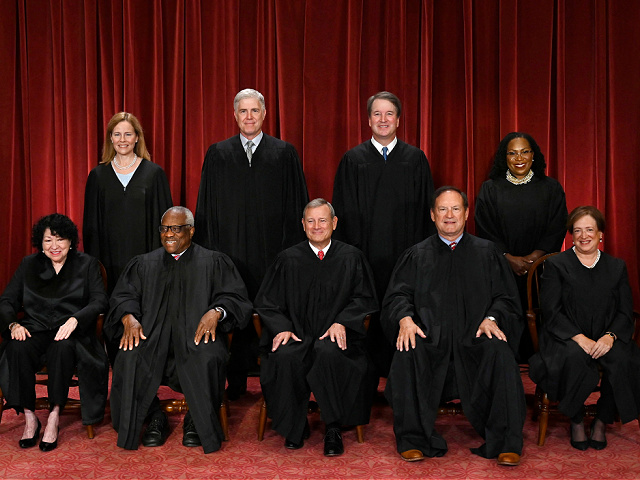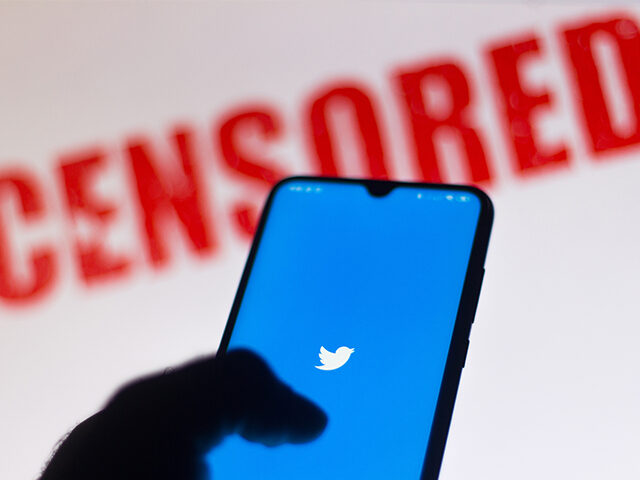WASHINGTON, DC – The Supreme Court announced Friday that it will decide whether Florida and Texas Big Tech laws violate the First Amendment, teeing up a major constitutional fight over attempts by conservatives and Republicans to fight leftwing bias in social media companies.
Florida and Texas both adopted laws restricting social media companies’ ability to censor people, which those companies do under the euphemistic label of “content moderation.” Big Tech companies sued, arguing these regulations violate the free speech rights of those companies under the Constitution. Private companies are not bound by the First Amendment, but federal, state, and local governments are.

Justices of the US Supreme Court pose for their official photo at the Supreme Court in Washington, DC on October 7, 2022. – (Seated from left) Associate Justice Sonia Sotomayor, Associate Justice Clarence Thomas, Chief Justice John Roberts, Associate Justice Samuel Alito and Associate Justice Elena Kagan, (Standing behind from left) Associate Justice Amy Coney Barrett, Associate Justice Neil Gorsuch, Associate Justice Brett Kavanaugh and Associate Justice Ketanji Brown Jackson. (Photo by OLIVIER DOULIERY / AFP) (Photo by OLIVIER DOULIERY/AFP via Getty Images)
Those two state laws are similar, and the Supreme Court will review two of the restrictions from those statutes. The first concerns the choices social media companies can make to suppress content, and the second requires those companies to provide individual explanations for specific instances of censorship.
For both provisions, the question is whether the First Amendment permits governments to impose those sorts of regulations of speech on private companies.
The cases are Moody v. NetChoice LLC and NetChoice LLC v. Paxton, Nos. 22-277 and 22-555 in the Supreme Court of the United States.
Breitbart News senior legal contributor Ken Klukowski is a lawyer who served in the White House and Justice Department.

COMMENTS
Please let us know if you're having issues with commenting.